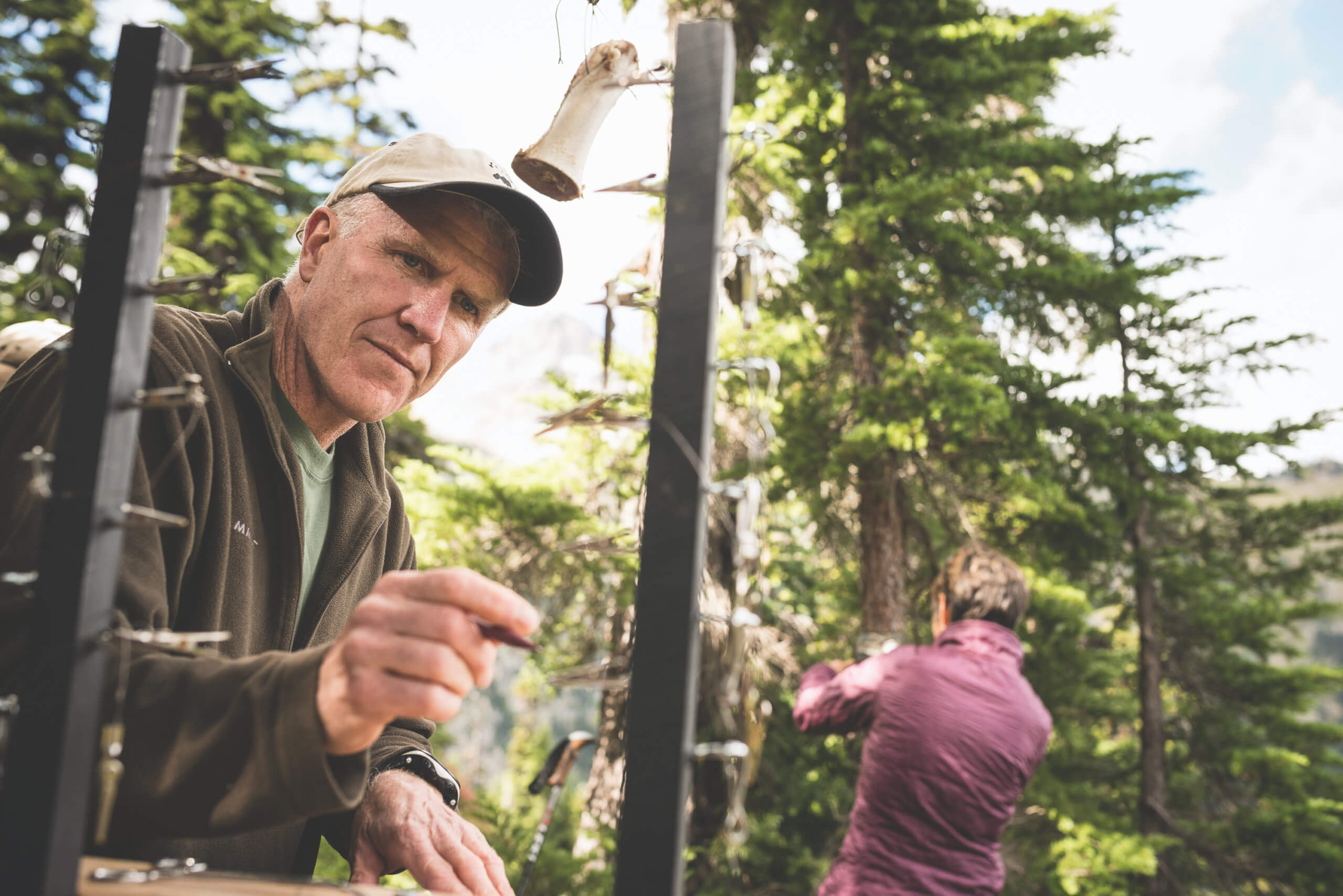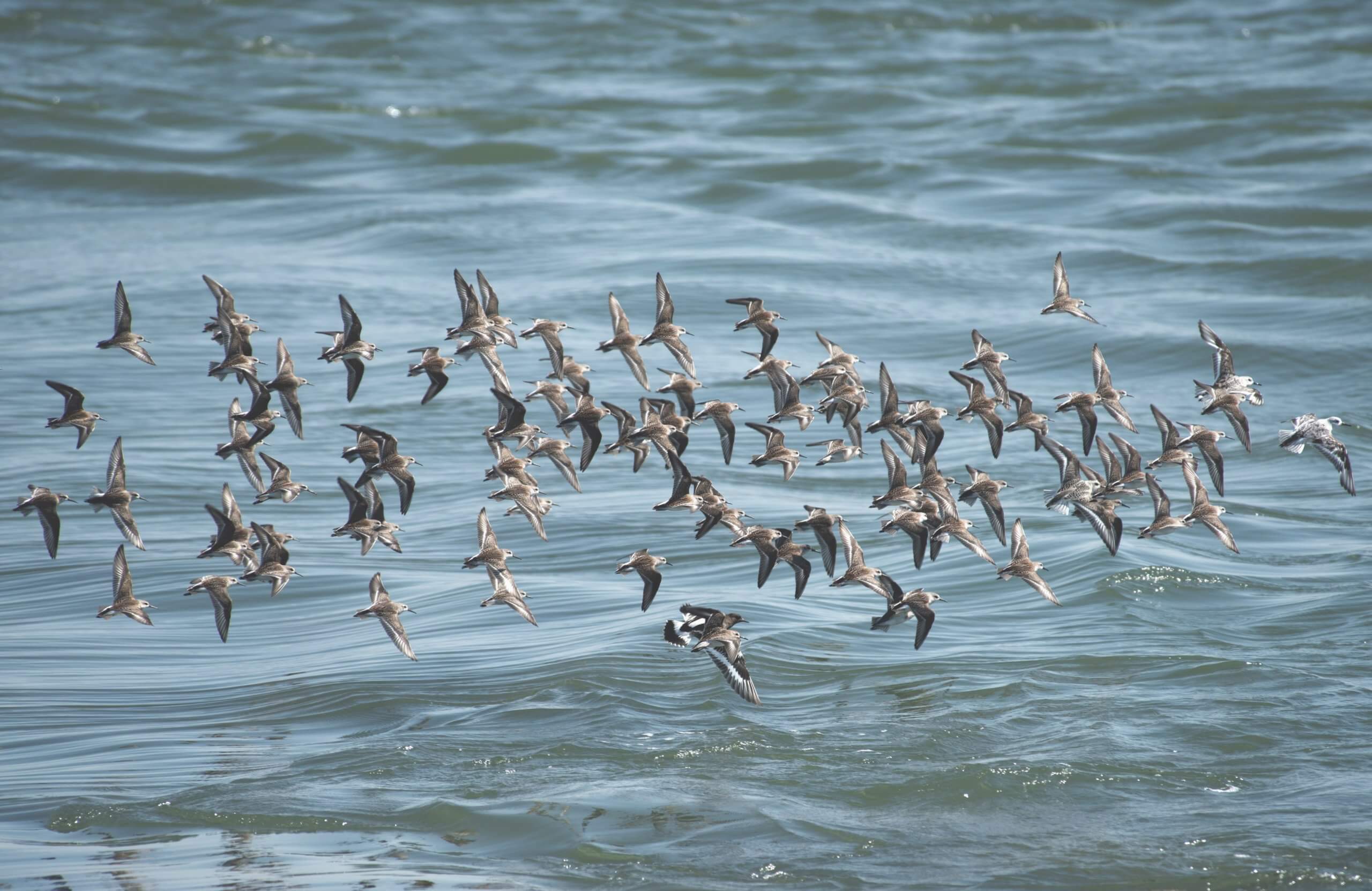By Nancy Baron
Published December 23, 2015
Title: Do You Want Your Research To Change The World?
Categories: Communication, Leadership, Science
Tags: advocacy, conferences, connecting, government, journalists, audience, outreach, So What?, Nancy Baron
At the 21st Biennial Conference on the Biology of Marine Mammals held last week, I stood in front of a vast conference hall before a sea of faces. It’s hard to know your audience with a group this size. Yet my task was to try reach every one of them as the moderator of a COMPASS panel featuring scientists and journalists, called “How To Make Your Science Matter.”
To take the temperature in the room, I asked everyone in the auditorium a personal question: “Do you want your research to change the world? If the answer is yes, stand up.” Some 2,500 researchers, students, and managers sprang to their feet. I could not see a single person sitting.
Society for Marine Mammalogy 2015 Conference panel “How To Make Your Science Matter.” Panelists from left to right: Ken Weiss, David Malakoff, Charles Littnan, Marcia McNutt, Nick Gales, Jane Lubchenco, with Nancy Baron moderating.
The scientists who research marine mammals unabashedly care about the charismatic subjects they study. Many of these scientists are tough as nails. They work under rugged conditions in extreme environments with animals that are sentinels for ocean health. Their direct connections with marine mammals, many of which are difficult to see and study, provide a powerful insight into cumulative impacts on the ocean including climate change, overfishing, bycatch, proliferation of plastic debris, and toxic pollutants.
A theme that ran through the weeklong conference was that marine mammals offer a “way in” to discuss larger environmental issues because the public cares about them too.
At the “How To Make Your Science Matter” panel, I solicited advice for policy impact from four scientists, all renowned for their communication chops – and their leadership.
Oregon State University marine ecologist Jane Lubchenco told tales from her time as the head of the National Oceanic and Atmospheric Administration (NOAA). “Decisions are going to take into account a number of things, values, politics and economics, but science should be at the table in a way that is understandable, relevant, and credible,” Lubchenco advised. For decades, she has made clear communications central to her enterprise, rising to leadership roles that included presidencies of the Ecological Society of America and the American Association for the Advancement of Science and now U.S. Science Envoy for the Ocean.
Another kernel of advice she offered, citing the research of Susan Fiske, a psychologist at Princeton University, was that if scientists want to win public trust and have broader societal influence, they must not only be competent, but also warm.
Panelists, from left to right: Ken Weiss, David Malakoff, Charles Littnan, Marcia McNutt, Nick Gales, Jane Lubchenco
Nick Gales, the president of the Society for Marine Mammalogy, is an Australian scientist who embodies warmth and competence. He says his career has been driven by a desire to “conduct, communicate and translate science into tangible policy outcomes.” “A small amount of science may be enough to effect change,” he said, “and more science isn’t necessarily better.” Instead, he emphasized the importance of scientists learning how policy works and getting to know policymakers who may help apply marine science in a targeted way.
Marcia McNutt, past head of U.S. Geological Survey and current editor-in-chief at Science magazine, has recently been nominated to be the first woman to lead the U.S. National Academy of Sciences. McNutt advised the marine mammal scientists at the meeting to recognize the importance of connecting their science to difference audiences by framing it appropriately. “The science is the same, but the audience and the use of the science may be different,” she said. “You have to think, who is your audience and what is the action you want them to take with your science?”
Charles Littnan, the lead scientist for the Hawaiian Monk Seal Research Program at NOAA Fisheries, talked about the importance of expressing optimism, even when the odds are long. “You have to shift from constant alarm bells to there’s still work to do, but there’s hope.”
Two journalists also joined the discussion. Ken Weiss, just off the plane from covering the United Nations’ climate talks in Paris for Nature magazine, and David Malakoff, deputy news editor of Science magazine, encouraged scientists to open themselves to speaking to journalists – and bringing them behind the scenes to witness their work and help tell their stories. As Malakoff said, “If you don’t make the effort to communicate your work, someone else will do it for you in a way you may not like.”
The panel discussion was followed by a reception that included the introduction of 14 journalists brought to the meeting as COMPASS Fellows, and catalyzed conversations that continued to weave the theme of communicating science through the week.
On Thursday, Michael K. Orbach and Claudio Campagna ended the day with provocative plenaries about feelings and values– and how changes in policy are linked to changing human values. Campagna, an eloquent Argentine scientist, explained “language is the dress of thought.” Campagna, who abandoned a career as a physician to pursue questions about the natural world, left the audience with a resonant thought: “We should be allowed to empathize with nature without feeling guilty of irrationality.”
Orbach, professor emeritus of marine policy at Duke University’s Nicholas School of the Environment, made the case that the Marine Mammal Protection Act of 1972 is an example where human conservation values have been codified into national law. When it comes to successful conservation, Orbach noted, “These efforts are about 20% based on science, 40% around consensus building and education, and 20% advocacy.” If conservation-minded scientists want to move forward, he concluded that they need more formal training in social science, facilitation, law, policy, and effective advocacy.
I couldn’t agree more. Many scientists want to change the world, but they wrestle with the thorny questions around advocacy and how it might taint their science or compromise their objectivity.
Coincidentally, this week in Nature I reviewed “The Public Professor: How to Use Your Research to Change the World,” a new book by Lee Badgett, a professor of Economics and Director of the Center for Public Policy and Administration at the University of Massachusetts, Amherst. Badgett’s research, which focuses on social equality and LGBT issues, informs her advice for researchers. Badgett doesn’t hesitate to call herself an “activist scholar.” Her view is that scientists can influence policy on issues from climate change to social justice by “ ‘injecting scholarship into important debates, taking advantage of good timing, being willing to handle disagreement’ and connecting with the public, activists and policymakers.”
“The Public Professor” will sit differently with scientists depending on their disciplines, institutions, leadership, and personal views but it’s a great catalyst for thinking about this nuanced issue and how it relates to you.
There are many paths for scientists who want to effect change in the world—as explored at the Society for Marine Mammalogy conference last week. And if you would like some more holiday reading on the subject there is plenty elsewhere on this blog. Happy holidays!
This post was transferred from its original location at www.compassonline.org to www.COMPASSscicomm.org, August 2017.



